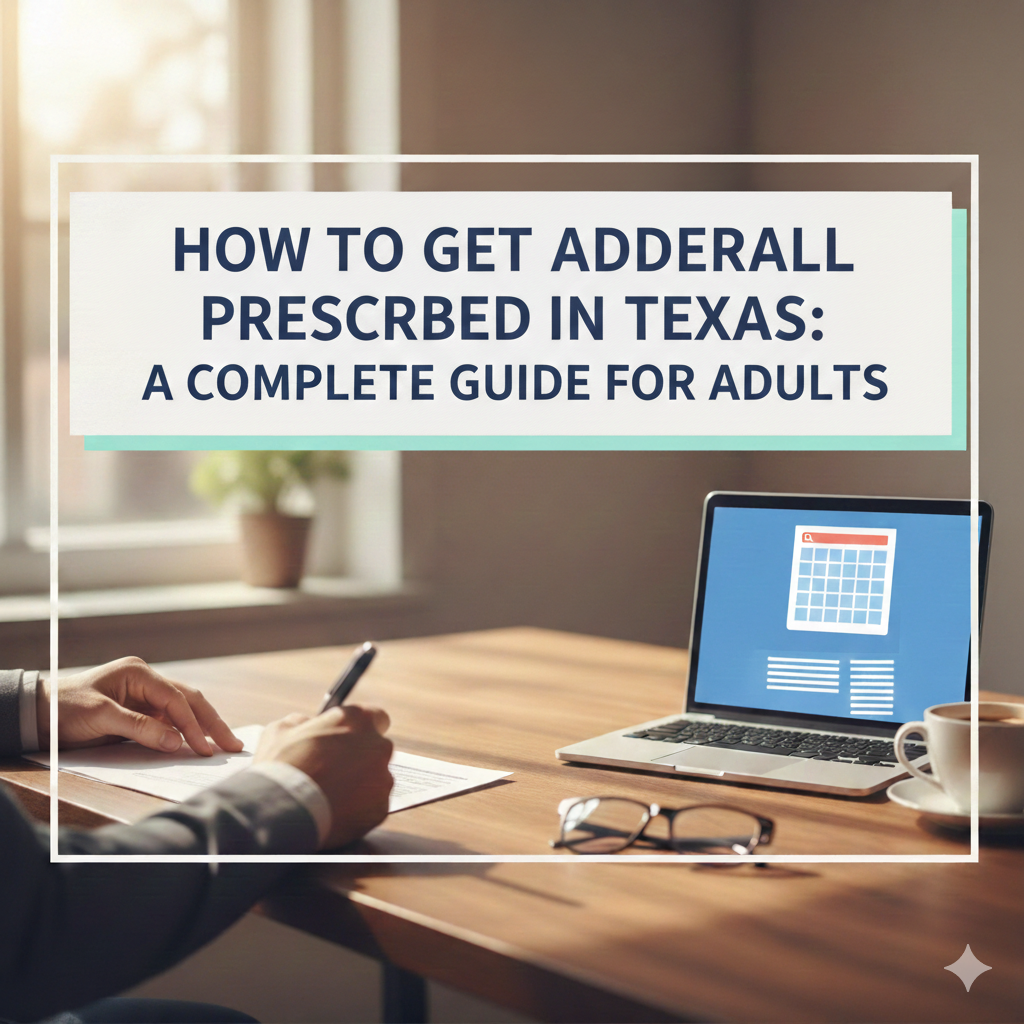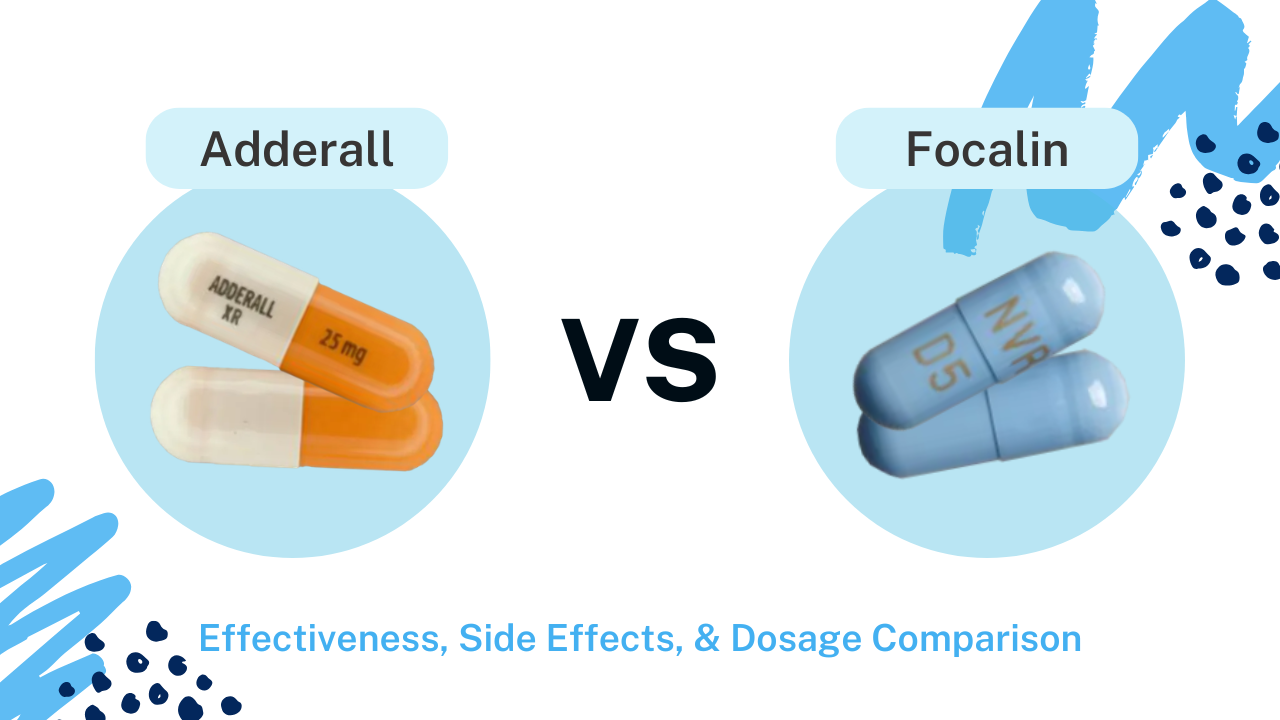Same Day Online ADHD Diagnosis
ADHD assessment?
ADHD and Disability—What's the Legal Connection?
Attention deficit/hyperactivity disorder (ADHD) is a prevalent condition in the US and New York. According to the CDC, 205,000 adults in New York are currently living with diagnosed ADHD.
ADHD causes hyperactivity, impulsiveness, and difficulty focusing, which can cause disruptions in daily activities. Because of these limitations, many people need additional support, leading to the question: "Is ADHD a disability in New York?"
ADHD is a recognized disability in New York. Federal and state laws protect individuals with ADHD from discrimination in schools, workplaces, and public programs. However, there are some common confusions surrounding people's rights in these areas.
We're going to help clarify any confusion about ADHD disability rights in New York. We will examine the laws that protect individuals in the workplace, schools, and public programs. Additionally, we will discuss the process of applying for disability in New York when diagnosed with ADHD.
Does New York Legally Recognize ADHD as a Disability?
Does ADHD qualify for disability in NY? Yes, ADHD is legally recognized as a disability in the state of New York. There are federal and state laws that protect the rights of individuals with ADHD as a disability.
Federal Laws
ADA
The Americans with Disabilities Act (ADA) is the federal law that protects people with disabilities from discrimination. ADHD is considered a disability according to the ADA. The ADA requires reasonable accommodations for individuals with ADHD in various settings, including the workplace, school, and other public areas. To qualify as a disability under the ADA, your symptoms must severely limit at least one area of your daily activities.
Section 504 of the Rehabilitation Act
Section 504 of the Rehabilitation Act is a federal law that prohibits discrimination against individuals with disabilities, including those with ADHD, in any program that receives federal funding, such as public schools. Schools and other businesses are required to provide reasonable accommodations for individuals with ADHD. Section 504 prevents discrimination against individuals with ADHD and ensures equal opportunity to receive program benefits or services.
Organizations that must provide reasonable accommodations under this law include hospitals, nursing homes, healthcare providers, and other similar services.
Individuals with Disabilities Education Act (IDEA)
The Individuals with Disabilities Education Act (IDEA) is a law that ensures students with disabilities in the US receive a Free and Appropriate Public Education (FAPE) that meets their unique needs. ADHD is classified as a disability under the IDEA law, specifically within the “Other Health Impairment (OHI)” category.
The school districts in New York determine a student's eligibility for special education programs and services under the IDEA. You can request an evaluation if you believe that your child meets IDEA's qualifications, and if they do, the school can help you create an IEP tailored to their needs.
New York State Human Rights Law
The New York State Human Rights Law (NYSHRL) is a state law that prohibits discrimination, retaliation, and harassment in areas such as housing, employment, education, and other public accommodations. The NYSHRL protects individuals with ADHD from discrimination. It recognizes ADHD as a "mental impairment" and therefore a disability. New York employers must provide reasonable accommodations to enable individuals with ADHD to perform their jobs to the best of their ability.
ADHD and Disability Rights in the Workplace
The ADA and New York state laws protect people with ADHD in the workplace. Let’s look at ADHD workplace rights in New York.
ADA Protections in the Workplace
When looking at ADHD and the ADA in New York, you’ll find that there are ADA protections for individuals with ADHD. The ADA defines a disability as a mental or physical condition that limits everyday living. So, ADHD must impact your day-to-day living to qualify for ADHD protection.
Employers must provide reasonable accommodations to enable employees to perform their jobs effectively. Common accommodations include noise-cancelling headphones or a distraction-free office space.
How to Disclose and Request Support Legally
To get started requesting accommodation for your ADHD, it could be helpful to think about what specific accommodations would help you perform your duties at work. Once you have an idea, then contact your employer and let them know some of the difficult challenges that you face at work due to your ADHD. You can suggest some solutions, and after your conversation, you should document everything that you and your employee agreed upon regarding accommodations.
Your employer is required to provide you with reasonable accommodations as long as it doesn't cause any unnecessary financial hardship for their business. So, if you feel that you have experienced discrimination, you can file a complaint with the Division of Human Rights.
If your employer denies your reasonable accommodations at work, then you can reach out to the Job Accommodation Network (JAN) to learn what you can do next. JAN can provide you with assistance, or you can find additional legal help. If you still can't come to any resolution with your employer, you can file a complaint of discrimination with the Equal Employment Opportunity Commission (EEOC).
ADHD Accommodations in New York Schools
Now, we'll go over ADHD school accommodations in New York.
504 Plans vs. IEPs
A 504 plan and an Individualized Education Program (IEP) both provide accommodations in schools for individuals with ADHD. Let's break each one down a bit further.
504 Plans
A 504 Plan falls under Section 504 of the Rehabilitation Act of 1973, which protects individuals with disabilities from discrimination. It is a plan to ensure equal access to education through special accommodations.
The main goal of a 504 Plan is to remove obstacles to learning in the public education system. Special plans for individuals with ADHD may include assistive technology, such as reminder apps. They might also feature a quiet area for testing or allow extra time for specific tasks.
IEPs
An IEP falls under the protection of the IDEA. The IEP is a comprehensive plan that outlines specific educational goals and provides the support necessary for a student to learn effectively in school. IEPs give students with ADHD a unique, tailored education. An IEP is a collaborative effort involving parents or caregivers, teachers, counselors, and other school professionals.
An IEP is more appropriate if a child has difficulty learning in a traditional classroom setting. Your student must have a formal diagnosis of a disability that affects their education and requires special instruction or services. An example of accommodation for a student with an IEP would be receiving a teacher's aide who specializes in ADHD.
How Parents and Students Can Initiate the Process
To initiate the process for either a 504 Plan or an IEP, parents must request a formal evaluation from the local school district. You'll want to include any documents from healthcare providers, as well as documentation of diagnosis and treatment. The school will follow up with its evaluation, reviewing any relevant school records, analyzing behavior, and consulting with past teachers.
If the school finds that your child is eligible for a 504 Plan or an IEP, then they will work with you to create one that fits your child's needs.
It's important to note that if the school denies your request or you disagree with the evaluation, you can always seek a second opinion from a professional. You also have the right to due process if you disagree with the school's decision.
Access to Government and Public Programs
Individuals in New York who have ADHD and are disabled have access to various government and public programs.
SSI Disability Qualification for ADHD in NY
According to the SSI, you are disabled if:
- You cannot work because of a medical condition (ADHD).
- You cannot do the work you previously could do.
- The SSA determines that you cannot do other types of work because of your condition.
- Your disability is expected to last at least 12 months or for the rest of your life.
Access to Public Programs
Let's examine your access to public assistance, counseling, and state-run programs, and gather information on ADHD accommodations in NY.
Public Assistance
Here are some types of public assistance programs available for individuals with ADHD:
- Supplemental Security Income (SSI) and Social Security Disability Insurance (SSDI): are federal program options available for individuals with disabilities, including ADHD, who have limited income.
- Medicaid: is an insurance plan that children and adults who receive SSI are usually eligible for, which can cover ADHD treatment in New York.
- Children's Health Insurance Program (CHIP) or Child Health Plus: provides insurance for children whose parents make too much money to qualify for Medicaid but still can't afford a private insurance policy.
- Temporary Assistance (TA): comprises two programs: Safety Net Assistance and Family Assistance, which can help you cover expenses in New York.
- New York Supplement Program (SSP): provides additional funds to people who are receiving SSI.
Counseling Services
In New York, you can utilize various mental health and counseling services, including:
- Community mental health centers: There are many community mental health counseling centers in New York that provide services to individuals with ADHD, including the NY Mental Health Center and Good Health Psychiatric Services.
- Sliding-scale treatment options: Open Path Psychotherapy Collective is a nonprofit nationwide network of mental health providers offering services at a cheaper, more affordable rate.
- 988 Suicide and Crisis Line: is a national lifeline that offers free crisis support 24/7. Counselors can offer free support for individuals dealing with ADHD.
- Children and Adults with Attention-Deficit/Hyperactivity Disorder (CHADD): offers local chapters in NY where they provide both in-person and online support for individuals with ADHD.
- Attention Deficit Disorder Association (ADDA): provides support for adults with ADHD.
State-Run Programs
New York offers various state-run programs to support individuals with ADHD, including:
- NYC 988: is a local version of the 988 crisis line, which provides access to counselors.
- New York State Office for People with Developmental Disabilities (OPWDD): offers resources and services for individuals with developmental disabilities, including ADHD.
- Adult Career and Continuing Education Services-Vocational Rehabilitation (ACCES-VR): helps individuals with disabilities find and keep employment and independent living.
- New York State Office of Mental Health (OMH): provides resources and services for people living with ADHD and refers them to mental health professionals who specialize in ADHD care.
How to Apply for ADHD Disability Support in NY
To receive disability support for your ADHD, you would need to show that your symptoms are severe enough to limit your day-to-day functions for 12 months or more. To qualify, these limitations must keep you from engaging in substantial gainful activity (SGA). Essentially, if you're unable to earn a specific amount of money as determined by the SSA, you may qualify for disability benefits.
Required Documentation and Application
Applying for Social Security disability can be a lengthy process. You can always reach out to a disability lawyer or other legal professional if you need assistance. You will need to gather medical records, work history, income information, personal contact details, and any other relevant documentation related to your treatment. Also, collect historical records, such as information from 504 plans or IEPs from your school years.
You will also want to show evidence that details how your symptoms of ADHD interfere with work. You can even add anecdotal evidence from people in your life who have noticed your symptoms. You can apply for help through the SSA website, in person at your local office, or by phone.
The Evaluation Process
As mentioned earlier, the process for evaluating SSI can be time-consuming, so let’s clarify what this process entails.
Medical Evidence
You will need to provide medical evidence of your ADHD. You may have to go through an evaluation from a psychiatrist or other mental health provider appointed by the SSA.
Functional Assessment
The SSA will assess your limitations in basic functions, including time management, concentration, and organizational skills. They will want to find out how ADHD impacts your ability to work.
SSA’s Five-Step Evaluation Process
The SSA employs a five-step evaluation process to determine eligibility for disability benefits. The process includes the following steps:
- Step 1. Are you working? If you are currently working, they look to see if you earned an average of more than $1,620 a month. If you haven't, you can move on to Step 2.
- Step 2. Is your condition "severe"? Does your medical condition severely limit your ability to perform daily work-related activities for at least 12 months?
- Step 3. Is your condition found in the list of disabling conditions? They check to see if your condition is on the list of medical conditions severe enough to prevent you from doing substantial gainful activity, and if not, is it as severe as one of the other conditions on the list.
- Step 4. Can you repeat the work you previously did? They will verify whether you can still perform any of your past work.
- Step 5. Can you do any other type of work? If you are unable to perform the jobs you used to, they will still consider your past experience and skills to determine if there's a job that you could do despite having ADHD.
Local Resources for ADHD Support in New York
There are many resources available for individuals with ADHD in New York. Some of these resources include:
- CHADD (Children and Adults with Attention-Deficit/Hyperactivity Disorder): provides help to individuals with ADHD. You can locate a chapter in your area using the CHADD network search.
- Manhattan Adult ADD Support Group: offers group meetings for adults with ADHD to come together and share experiences.
- ADDA: offers numerous resources for individuals living with ADHD, including online events and additional helpful resources, such as a free ADHD self-screening tool created by the World Health Organization.
- LawHelpNY: Helps people find legal aid services in NY, including those with ADHD.
- Legal Aid Society of Mid New York: offers legal aid for people with disabilities in NY and has a disability advocacy program (DAP) which you can apply for.
- Legal Services NYC: provides free legal assistance to individuals with disabilities.
- Child Mind Institute: offers an ADHD treatment program in NY.
- INCLUDEnyc: provides specialized education guidance and free workshops to assist families with disabilities and ADHD in navigating the school system.
- Advocates for Children of New York: supports students with disabilities up to the age of 26 who are struggling in school. They assist children in accessing services and making necessary changes to ensure that your child receives the education they deserve in New York.
- AHRC NYC: provides education and advocacy support for families and adults with disabilities. They provide support for education, employee training, evaluations, and other related services.
FAQs
Is ADHD a disability under New York law?
Yes, New York considers ADHD a disability. The federal ADA law protects the rights of individuals with ADHD in the workplace. Employers are required to provide reasonable accommodations to ensure that individuals with ADHD can perform their jobs effectively and efficiently. The NYSHRL in New York also protects individuals with ADHD, with a broader definition of a disability that includes mental health conditions.
Can I get disability benefits for ADHD in NY?
Yes, you can receive disability benefits for ADHD in New York, but it will depend on the severity and how it disrupts your ability to work or perform daily tasks. Your ADHD symptoms would need to significantly limit your day-to-day tasks for at least 12 months in a row. You'll also need to provide documented evidence of your ADHD, such as diagnosis, treatment history, and examples of how it disrupts your daily functioning.
If your claim is denied, you can request reconsideration and have a new evaluation, possibly with additional evidence for your case. If the reconsideration is denied, you can request a hearing where you can present your case to a judge. If the judge denies your claim, then you have the right to appeal. At any stage during the process, you can contact legal assistance, including LawHelpNY and the Legal Aid Society of Mid New York.
What rights do I have at work if I have ADHD?
If you have ADHD, you are entitled to reasonable accommodations at work and legal protections against discrimination under the Americans with Disabilities Act (ADA). Common reasonable accommodations for ADHD can include:
- Having a quiet workspace
- Noise-reducing headphones
- Frequent breaks
- Assistive technology
- A private workspace
- Access to task management software
- Access to an ADHD coach or a job coach
- Additional time to complete tasks
- Remote work
- Flexible work schedules
Conclusion: You Have Rights—And Resources
ADHD is a disability and can cause issues in your life, including problems at work or school. However, if you are aware of the ADHD legal protections in New York, you can become empowered. No one should ever feel treated differently or discriminated against because of a mental disability.
There are so many helpful resources in New York, and local guidance and support groups, that you can find the help you need. Whether you are applying for disability benefits or seeking accommodation at work or school, it's essential to understand ADHD disability rights in New York. You may even want to seek legal counsel, especially if you are applying for disability benefits, as it can be a long process.
The first step to getting the protection you deserve is to get a proper ADHD diagnosis. At ADHDAdvisor, we offer telehealth services for ADHD diagnosis in New York. We also provide ongoing treatment, which may include non-stimulant online prescriptions as well as therapy and coaching. You don't even have to leave your home—you can get started on the process right away by taking our quick screening.





.svg)
















